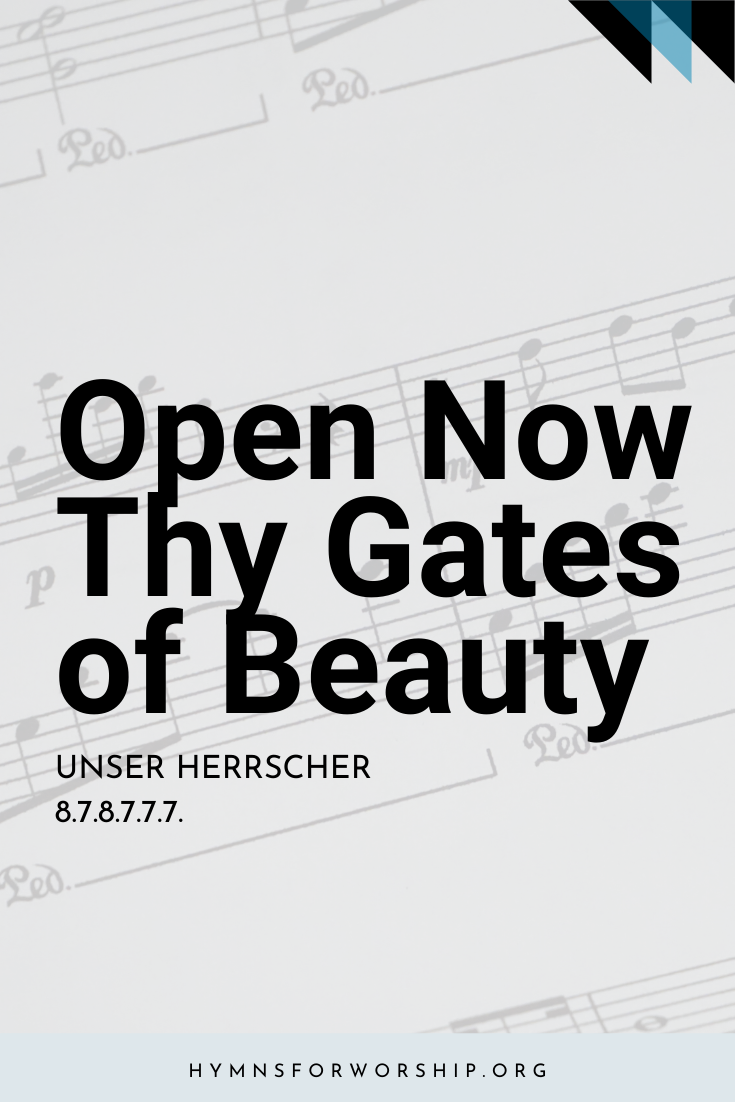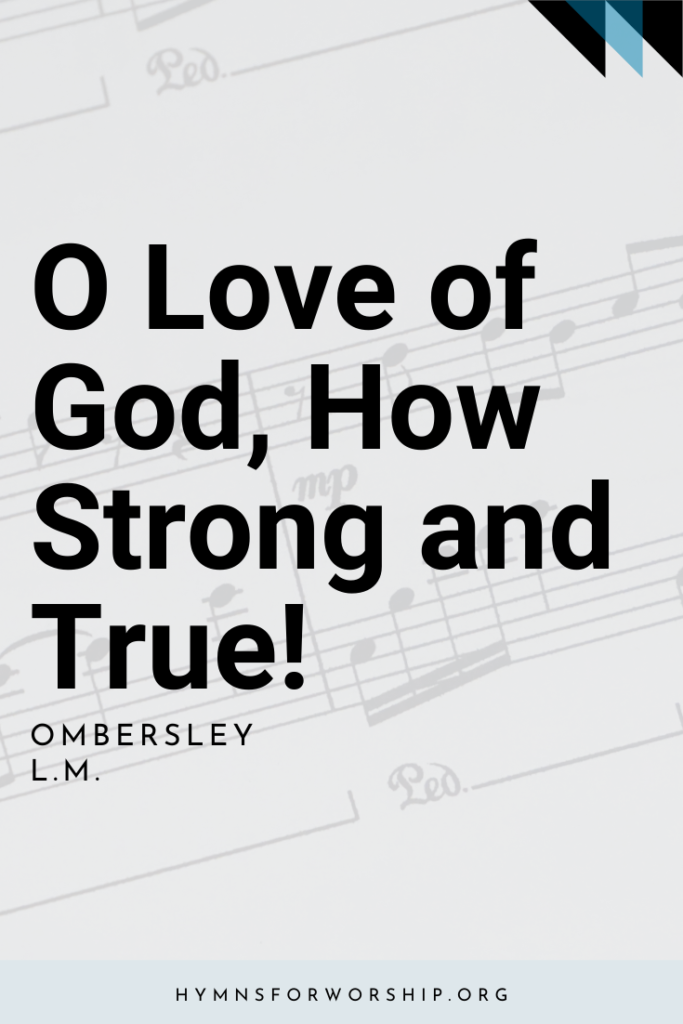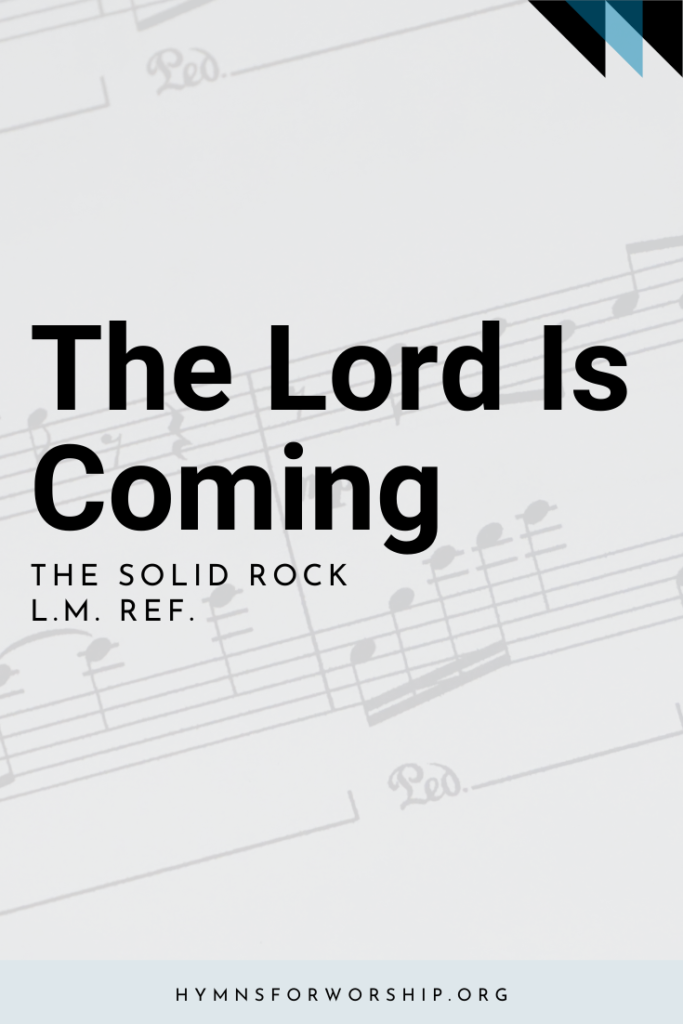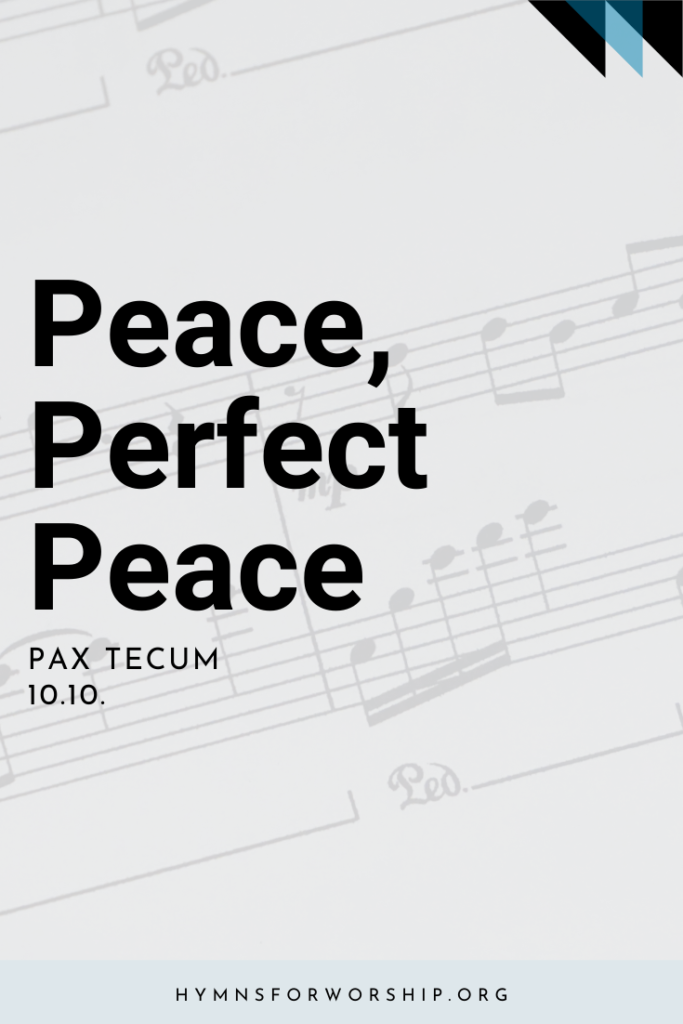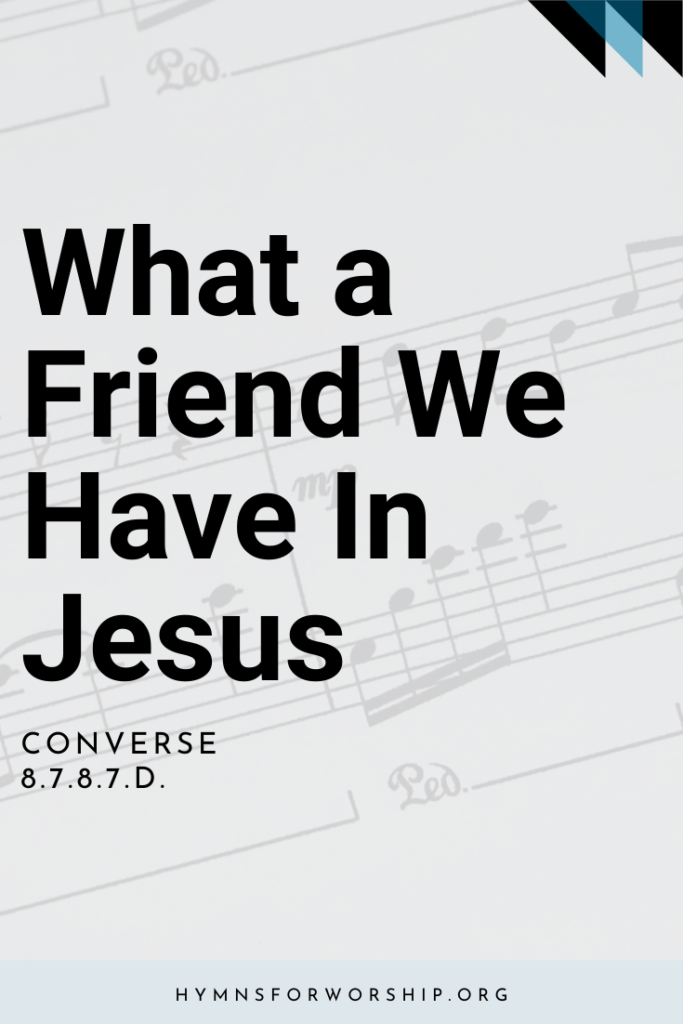WORSHIP >> Morning WORSHIP
SDAH 45
Open now thy gates of beauty,
Zion, let me enter there,
Where my soul in joyful duty
Waits for God Who answers prayer.
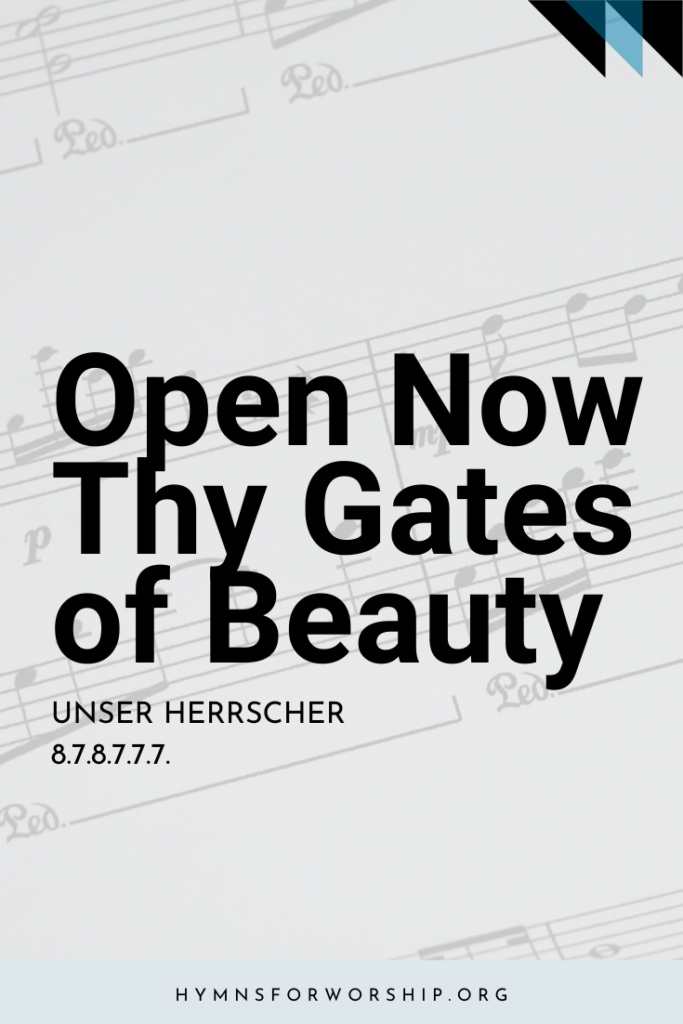

Text
1
Open now thy gates of beauty,
Zion, let me enter there,
Where my soul in joyful duty
Waits for God Who answers prayer.
Oh, how blessed is this place,
Filled with solace, light, and grace!
2
Gracious God, I come before Thee,
Come Thou also unto me;
Where we find Thee and adore Thee,
There a heav’n on earth must be.
To my heart, oh, enter Thou,
Let it be Thy temple now!
3
Here Thy praise is gladly chanted,
Here Thy seed is duly sown;
Let my soul, where it is planted,
Bring forth precious sheaves alone,
So that all I hear may be
Fruitful unto life in me.
4
Thou my faith increase and quicken,
Let me keep Thy gift divine,
Howsoe’er temptations thicken;
May Thy Word still o’er me shine
As my guiding star through life,
As my comfort in my strife.
5
Speak, O God, and I will hear Thee,
Let Thy will be done indeed;
May I undisturbed draw near Thee
While Thou dost Thy people feed.
Here of life the fountain flows;
Here is balm for all our woes.

Hymn Info
Biblical Reference
(a) Ps 122:2 (b) 1 Cor 3:16 (d) Luke 17:5 (e) 1 Sam 3:10
Author
Benjamin Schmolck (1672-1737)
Translator
Catherine Winkworth (1827-1878)
Year Published
1863
Hymn Tune
UNSER HERRSCHER
Metrical Number
8.7.8.7.7.7.
Arranger
Joachim Neander (1650-1680)
Alternate Harmony
SDAH 418
Theme
MORNING WORSHIP

Get the hymn sheet in other keys here
Notes
Get to know the hymns a little deeper with the SDA Hymnal Companion. Use our song leader’s notes to engage your congregation in singing with understanding. Even better, involve kids in learning this hymn with our homeschooling materials.

